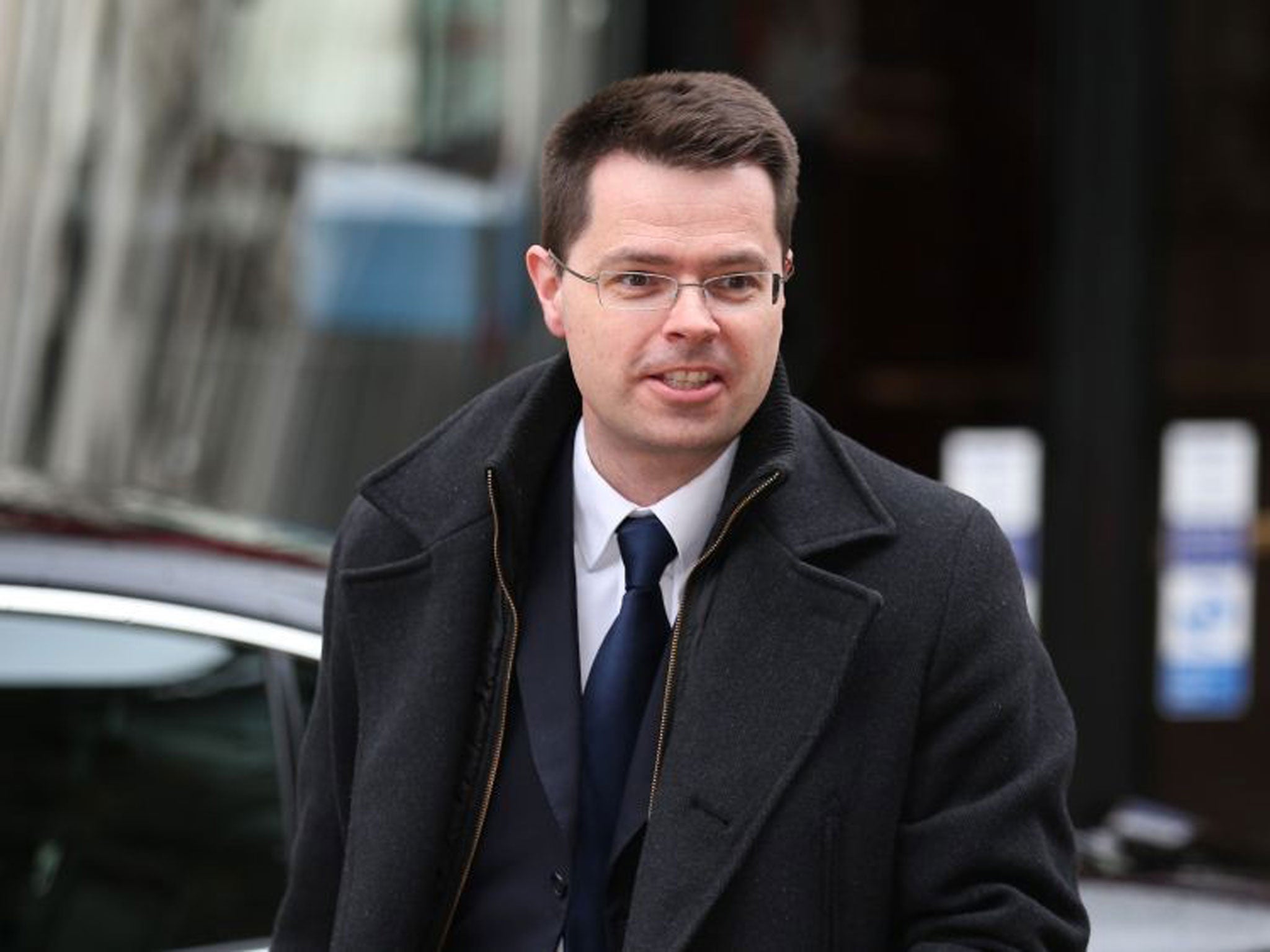The trouble with Brokenshire Britain
The three main party leaders agree on policy, but posture on small measures


Do you not feel just a little sorry for James Brokenshire? An otherwise blameless Conservative minister seemed to be sliding out a perfectly loose-looking Jenga block from the tower, when down the whole thing came.
He had been the lucky beneficiary of someone else's mistake last month. Mark Harper, the immigration minister, had had one of those moments with which most of us are familiar – not the specifics, but the general. Those documents confirming the immigration status of his cleaner: he knew he had put them somewhere. He should have checked them when he got the job but didn't get round to it until, oh dear, it turned out she wasn't allowed to work in this country.
He had to resign, and Brokenshire moved up a step in the Home Office. So, when Brokenshire turned up last week at the think tank that sounds like an aftershave, Demos, to deliver his first speech in his new brief, as aspersions flew over a "suppressed" government report on the effects of immigration, it seemed that it might be worth paying attention.
Indeed, it was an interesting speech. The structure was peculiar because a section attacking Vince Cable, the Liberal Democrat Business Secretary, had been pasted into a more conventional speech attacking the previous Labour government. Perhaps Theresa May, the Home Secretary, had thought to use Brokenshire's debut to respond to Cable's crowing over her failure to get net immigration down. Cable, a balding man who is scrapping with Tim Farron over the comb of the succession to Nick Clegg, had welcomed the figures as "good news" – because they showed that our economy was growing.
Brokenshire said this was "simply incorrect", in a section of the speech that had presumably not been cleared with his Lib Dem partners. It was not good news for "the ordinary, hard-working people of this country", he said. It was good news only for "employers who wanted an easy supply of cheap labour, or to the wealthy metropolitan elite who wanted cheap tradesmen and services". That was the moment the tower began to fall. The "wealthy metropolitan elite" such as his predecessor, who employed a cleaner from Colombia, and the Prime Minister, who employed a nanny from Nepal.
Suddenly, the offices of the Parliamentary press, usually quiet on a Friday, hummed with activity as every last bag-carrier to HM Government was interrogated about the names and immigration status of anyone who had so much as looked at a pipe in their home over the past seven years and sucked their teeth at the quality of the work that had been done on it before.
Suffice to say that Brokenshire's name was mud. Rachel Johnson, sister of Boris, commented on what a good name it was for a Tory minister who blamed immigration on the middle classes. Actually, he should have counted his blessings. Such was the hullabaloo over that single sentence that the hopeless arguments in the rest of the speech about the benefits and disbenefits of immigration, and why Labour was to blame for the latter, disappeared from view.
By chance, the BBC helped to expose the weakness of Brokenshire's speech when it took its Question Time claptrap to Barking, a part of east London most affected by immigration, where Rachel Reeves, Labour new, clashed with Michael Heseltine, Tory old.
Reeves seemed to say that immigration was a bad thing with some good points, while Lord Heseltine seemed to say the opposite. Reeves said "we can't roll back the clock" and undo the "mistake" (Ed Miliband's word) made by the Labour government, of allowing free movement of Poles, Czechs and Hungarians in 2004, and she made the "nothing to do with me" point that she had not been elected until 2010. It is also true that Heseltine accused her of "arrant hypocrisy" (as opposed to the more usual "breathtaking" or "rank" kinds) because it was still her party's government that made that decision in 2004. But there his argument collapsed, because, although he posed as a valiant welcomer of immigrants, he too accepted that the failure to impose transitional controls in 2004 had been a mistake.
That is, actually, where the immigration debate has got to. For all Heseltine and Brokenshire's attempts to blame the last Labour government, everyone is now agreed that transitional controls should have been imposed to slow down the rate of change. Everyone, that is, with the possible exception of Cable. Nor, apart from him, do the leaders of all three main parties disagree about current policy. All three want to keep a tight lid on immigration from countries outside the EU; all three know there is little they can do about free movement within the EU; so all three posture a bit on small measures such as denying social security benefits to people from other EU countries until they have been here for a while.
And Brokenshire tried to pretend that, although net immigration is going up when the Tories said it would go down, this is Labour's fault for... having joined the European Union in 1973. Oh.
Yes, I feel a bit sorry for him.

Join our commenting forum
Join thought-provoking conversations, follow other Independent readers and see their replies